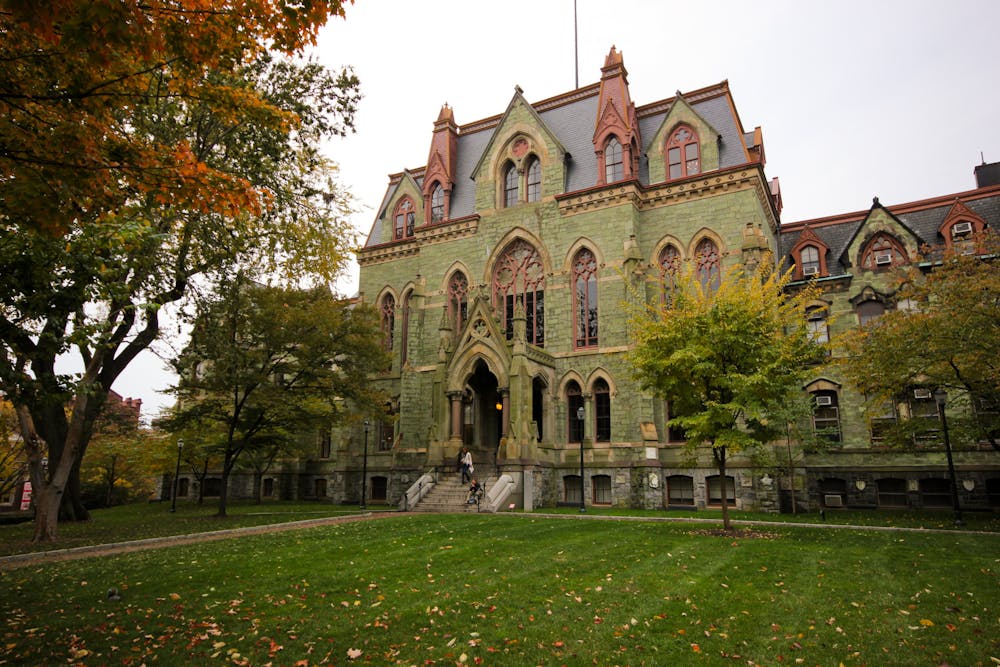Hundreds of university faculty and staff members nationwide signed an open letter calling on Penn to defend faculty, students, and staff who have faced targeted harassment in response to their pro-Palestinian advocacy.
The letter included signatures from 44 Penn affiliates at the time of publication and was made public on Nov. 20. The letter called on University leadership to release a letter a statement in support "for the academic freedom and safety of Penn faculty being maligned and attacked on social media and within the University."
“The University has failed to condemn—publicly, clearly, and consistently—the numerous episodes of harassment and intimidation directed specifically against Arab, Muslim and Palestinians students and faculty,” the letter said.
The letter also referenced Penn’s American Association of University Professors’ recent statement, which condemned University leadership for not properly acknowledging Penn's Palestinian, Arab, and Muslim community members.
A University spokesperson previously told The Daily Pennsylvanian that they have received the AAUP-Penn letter and are aware of the related petition.
"We share AAUP-Penn’s desire to keep all members of our community safe, as well as its commitment to academic freedom," the spokesperson wrote.
However, AAUP told the DP that the University has not responded to the letter or acknowledged receipt of it.
The signatories of the national letter also called on the University to denounce "all libelous and defamatory attacks on its Arab, Palestinian, and Muslim students and faculty and show the same level of concern for them as it purports for Jewish students and faculty."
Rowan, Lauder, and Huntsman companies have donated over $50,000 to Republicans critical of Penn
Department of Education launches investigation into Penn over alleged instances of antisemitism
The letter referenced the numerous public statements Penn has recently released, accusing Penn’s statements of suggesting that “the presence and activities of Palestinian and pro-Palestinian voices on the Penn campus are linked to antisemitism or harassment of Jewish students and faculty.”
The signatories condemned antisemitism, adding that they believe that "supporting Palestinians under Israeli military occupation, siege, and attack and calling for justice and freedom is not antisemitism."
Professor Ian Lustick, Political Science professor, was one of the letter’s signatories. Lustick said that when he came to Penn in 1990, extremist organizations were filing harassment lawsuits against individuals they deemed to be hostile to their views against Israel and that he was "proud" that the University supported him during that time.
“I signed this statement because I believe UPenn should be clearer about its commitment to defend its faculty and students against vicious and unscrupulous efforts to intimidate, slander, or cancel them because of their political opinions, the arguments they make, or the questions they ask,” Lustick wrote to the DP.
Music professor Carol Ann Muller also signed the letter and told the DP that she encourages Penn to support the University's diverse perspectives,.
“We have so many students and faculty from around the world, many of whom have knowledge and experience that could inform us, who have thoughts about, and lived through revolutions, regime changes, civil war," she wrote.
The statement also described Penn faculty members, students, and staff as having been “falsely defamed, smeared, and maligned by a public petition and by an atmosphere of intimidation and Islamophobia on the campus where they work."
Most recently, the Middle Eastern Studies Association called on Penn administrators to protect academic freedom and defend faculty members subjected to threats for pro-Palestinian speech. The DP previously reported that multiple Penn faculty members and students received threats after speaking at pro-Palestinian rallies.
Editor's note: The DP previously misattributed a quote from the petition to AAUP-Penn. The article has been updated to reflect that AAUP said that the University has not responded or acknowledged receipt of their Oct. 28 statement. The DP regrets these errors.









